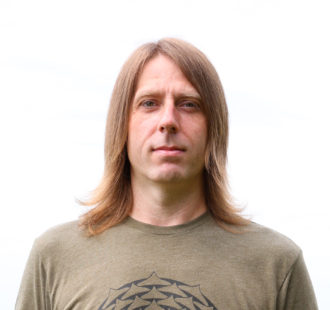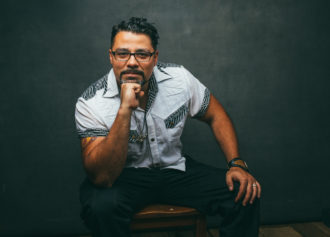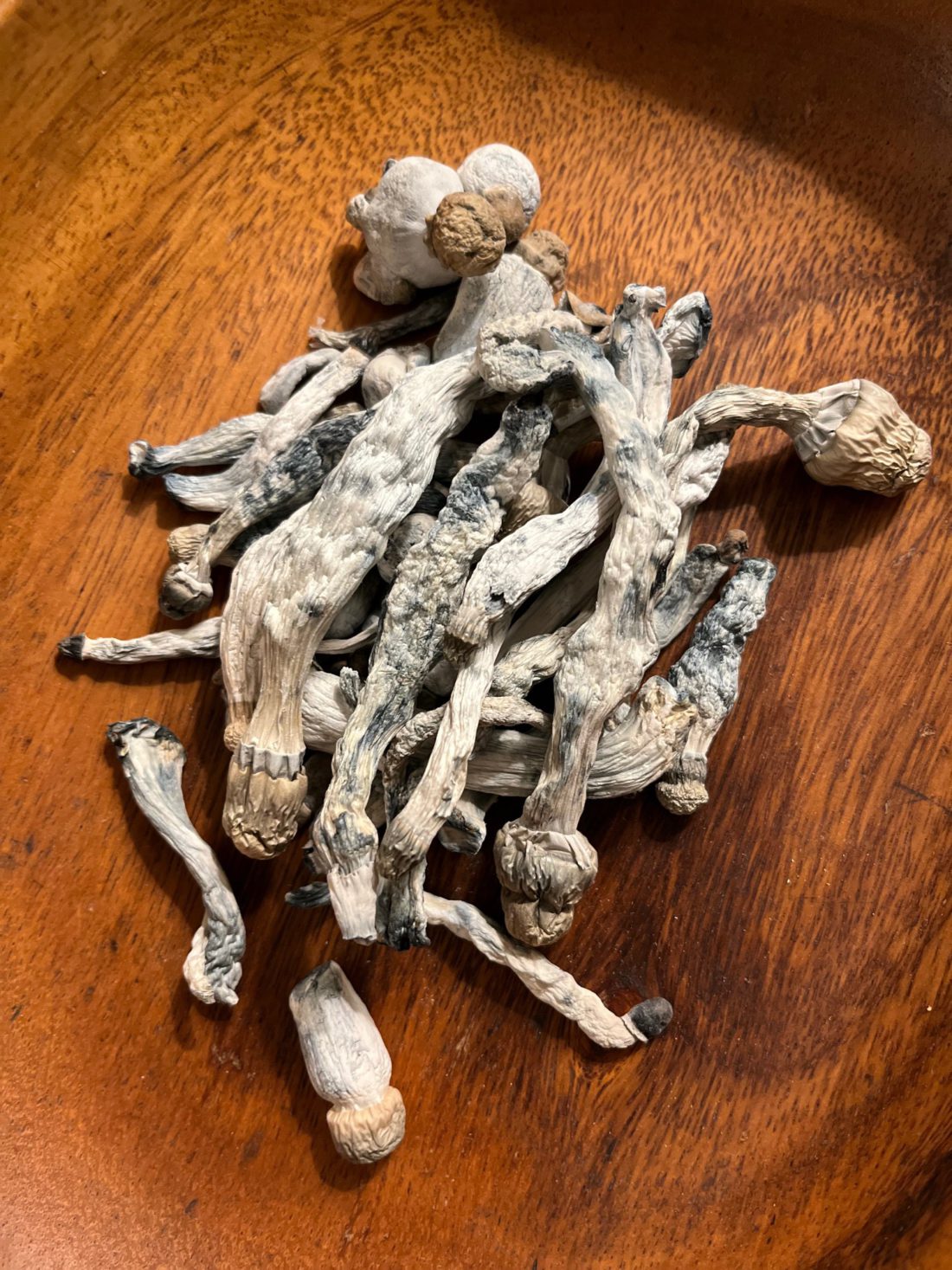To an outside observer, Eliza’s life appeared to be one of untrammeled privilege. She was raised in a wealthy suburb, attended private schools and traveled widely. By her 20s, she’d earned a degree from a top university and gotten prestigious jobs in politics.
But those appearances hid a chaotic upbringing. Eliza’s father was an alcoholic, and her parents divorced while she was in middle school. She began experiencing depression and was prescribed the antidepressant Prozac at age 13.
Then, after he had survived a serious illness, Eliza’s father died suddenly following an injury. Two years later, her boyfriend died by suicide. These two deaths, occurring so close together, plunged Eliza into a deeper depression, and she began thinking of killing herself all the time. Prozac was no longer cutting it.
Fast forward to today, and Eliza’s life looks familiar to that of many Asheville women. She loves farmers’ markets and walking her dogs. She has a zeal for the outdoors.
And for some people, one aspect of her mental health care regimen is particularly familiar: Eliza takes psychedelic mushrooms in a guided setting for the management of her depression.
Eliza spoke with Xpress using a pseudonym, as possession of the chemical those mushrooms contain, psilocybin, is illegal under the U.S. Controlled Substances Act. According to the federal Drug Enforcement Administration, psilocybin is a Schedule 1 drug, meaning it has “no currently accepted medical use in treatment.”
However, Eliza and others like her call the benefits from mushrooms “plant medicine.” They credit psilocybin for their mental well-being and point to a growing body of research supporting that experience.
“There’s not as much stigma around” psychedelics such as mushrooms being used therapeutically, explains Dr. Tiffany Sauls, an Asheville psychiatrist. She provides psychotherapy assisted by ketamine, another drug with hallucinogenic properties, at Asheville Integrative Psychiatry.
Sauls says the use of psilocybin is being “mainstreamed” in the mental health community, although she notes she does not use it in her practice. “It’s being used in research, versus just hippies having a good time,” she adds with a laugh.
Beyond the pillbox
People who use mushrooms for depression or anxiety often have a clinical history of using pharmaceutical antidepressants or anti-anxiety medication. But for several reasons — undesired side effects, acclimation to the dosage or the drugs simply not working — they find those medications wanting.
Eliza found her way to psilocybin through clinical uses of ketamine and MDMA. (The latter, like psilocybin, is also illegal to possess except in medical research). She says she was “not functional” after losing her father and boyfriend back-to-back, and in 2017, her brother began researching how ketamine might reduce the symptoms of her depression. “It was kind of this Hail Mary for me,” she recalls.
She ended up participating in a clinical trial for the drug, then began getting ketamine intravenously as a depression treatment. After moving to Asheville a couple of years later, Eliza tapered off her pharmaceutical antidepressants to use MDMA for depression “under the radar with a mental health professional.” She says both ketamine and MDMA helped her depression symptoms temporarily.
Then her brother, who was coping with similar mental health issues, introduced Eliza to “people who worked with plant medicine.” Her first experience with psilocybin in 2019 “kind of cracked me open,” she says. Her use of psychedelic mushrooms almost 10 times over the past four years, she continues, has addressed her pain and feelings of abandonment in ways pharmaceuticals, ketamine and MDMA never did.
Although Indigenous cultures have long used mushrooms and other psychedelics in spiritual or healing contexts, they weren’t widely known in the U.S. until 1957. That year an American banker, R. Gordon Wasson, published an account of visiting Mexico and taking mushrooms with the Mazatec shaman Maria Sabina in Life magazine. (The attention generated by Wasson’s article led Sabina to be ostracized from her community, and she came to regret sharing the tradition.)
Western scientists proceeded to explore therapeutic uses for psilocybin in the 1950s and ’60s, but a social backlash against psychedelics and their association with countercultural movements led to Congress outlawing them in 1966. Formal research on mushrooms almost entirely stopped until 2000, when a research group at Johns Hopkins University got regulatory approval for a new study.
That team has since published over 60 scientific articles on psilocybin and its effects, and many other scientists have started to work with the chemical. Sauls, who studies MDMA but has not been involved in psilocybin research, says those results have been promising.
“The research up to now is showing that even a single high dose of psilocybin can be effective treatment for depression, end-of-life anxiety, ruminative thought patterns and addiction,” says Sauls. She also notes that the potential risks and adverse events from psilocybin usage are low. Unlike some other drugs used to treat mental health conditions, like the benzodiazepine Xanax, it is not addictive.
Like Eliza, Andrew Phillips also found his way to psychedelics after trying multiple pharmaceutical treatments for his treatment-resistant depression and obsessive-compulsive disorder. He says clients who hire him to provide “psychedelic peer support,” or preparing them for using a psychedelic and sitting with them through the experience, are often “absolutely fed up” with the medical establishment.
“A lot of these people have been in the mental health system for 10-20 years and haven’t found relief,” he says.
Phillips began teaching educational workshops about psychedelics, which he organizes on Meetup, in September. “They’ve been incredibly popular,” he tells Xpress. “Every time I have one, I have a waitlist.”
In general, pharmaceutical antidepressants and antianxiety medications treat symptoms of mental illness by affecting neurotransmitters: substances produced by the brain, like serotonin or dopamine, that change how its cells communicate. While psilocybin also tweaks neurotransmitters, people with depression or anxiety who have used it say the chemical addresses something more deeply at their core.
Eliza, for example, says her first time using psilocybin “brought everything to the fore” regarding her father and her boyfriend’s deaths — in particular, “everything that I’d been avoiding feeling, everything that I hadn’t processed.” In fact, due to the intensity of that experience, she says her depression “got a lot worse before it got better,” because she needed to integrate the learning from her psychedelic journeys into her life.
Phillips says education about psilocybin’s effects at different doses and how to use it safely is crucial, as is preparing mentally. “Self-care is really important,” he says. He advises people to “do things that make you happy and bring you joy so when you show up for the experience, you’ll be in a better head space to get the most out of the experience.”

‘Brought everything to the fore’
Everyone has a uniquely different experience using psilocybin, but generally speaking, Philips says, “an inner monologue will come online.” He says this inner monologue generally exudes an OK-ness with oneself or with the world. It can sometimes offer something like life advice, such as encouraging the person to spend more time outdoors.
“That’s where the integration [afterward] comes in,” he explains. However, a user needs to be willing to receive whatever that voice might say, including the resurgence of repressed trauma.
During her most meaningful immersive experience, Eliza remembers “being in this visual [of] this room with these doors, and I kept just opening them, and there was nothing there.”
She continues, “My brother’s voice came into my head, [saying,] ‘No, there’s nothing there. There’s no secret. Look at everything you have. Life is good. Just let it be. Let the goodness that is there be.’” She remembers “laughing at how utterly simple it was — how like this thing that people have been trying to tell me for, at that point, 30 years, just suddenly clicked.”
Revelations like that from mushrooms, Eliza says, represent the difference between “intellectually understanding something [versus] to know it, to feel it, deliver it and absorb it.”
Safety first
The majority of Eliza’s psilocybin experiences have taken place in Asheville, working with people who have come from outside North Carolina. “Some of them are in a very ceremonial place; some of them are actually working one-on-one with a facilitator,” she says.
Facilitators can also be found locally, such as Ehren Cruz, founder of The SpArc, an Asheville-based psychedelic coaching group. He says that a handful of other guides — “seven to 10 at most” — operate openly in WNC, with others choosing to stay underground due to the legal status of psychedelics.
Cruz describes his work as being a “legal harm reduction ceremonial facilitator,” and like Phillips, he says his guidance for clients starts well before they ingest any mushrooms. (According to his website, Cruz has “facilitated over 85 high-dose, one-on-one ceremonial journeys and served as lead facilitator in 10 psychedelic retreats.”)
During his initial consultation, Cruz, who is a certified psychedelic coach through the public benefit corporation The Third Wave, conducts a mental health and medication screening. “It’s important to recognize that there are some key contraindications in mental health that this particular type of experience may not be optimal for — people that are suffering from schizophrenia or multiple personality disorder, or bipolar disorder or mania,” he explains.

He also screens for people who are taking certain classes of pharmaceutical antidepressants. Taking selective serotonin reuptake inhibitors like Lexapro, Prozac or Zoloft, for example, “will severely blunt the experience [of psilocybin],” Cruz explains. “You won’t be able to actually have a highly immersive experience.” Monoamine oxidase inhibitors like Nardil and Parnate, on the other hand, can extend a four- or five-hour immersive experience to 10-14 hours, he says.
Cruz has clients complete a questionnaire about their past traumas, as well as suicidal ideation. Some people opt to have their immersive experience with him as a facilitator alongside a psychotherapist or a counselor. “Those types of triggers and traumas, when unearthed, can be very difficult to navigate through,” he explains.
When Phillips trip-sits someone during immersive experiences, he listens to them talk about their experience and “be a calm, guiding presence [beside] them.” If a person having an immersive experience starts to freak out, also known as “a bad trip,” Phillips says he will “calmly reassure them this will be over soon,” and will hold their hand if they want.
He continues, “There’s really no way to talk somebody down [during a bad experience]. It’s just got to move through. … Then when it’s on the other side, they’re almost always better.”
Into the light
Because psilocybin is illegal, Cruz and Phillips both emphasize that they do not provide any mushrooms. Clients must bring their own, and the guides are simply present when the client consumes them. Both have disclaimers on their websites saying their educational information should not be interpreted as medical advice.
Yet Phillips says he isn’t fearful of law enforcement knocking on his door. “I’m not doing anything illegal — I’m not offering anybody any medicine,” he explains. “I’m just sitting for somebody while they’ve taken the medicine.”
In fact, he says he would welcome a conversation with law enforcement about psychedelics. “They need to be educated, just like the public does, so they know how these medicines work and what people are using them for,” Phillips says. “So no, I’m not concerned. … I totally expect law enforcement to show up one day and start asking questions. And I welcome that 100%.”
Eliza doesn’t speak openly about her therapeutic use of psychedelic mushrooms except with close friends. She tells Xpress that the prohibition of the drug carries a stigma she finds hard to shake.
“That’s something I’ve actually talked a lot about with my therapist — that I’ve had trouble giving myself permission to [do it],” she explains. “It feels indulgent. … But you know what? That’s actually my medicine and where I find healing and growth and peace.”
UPDATE, 2/1/23: This article has been updated with the correct name of Dr. Sauls’ practice.




Before you comment
The comments section is here to provide a platform for civil dialogue on the issues we face together as a local community. Xpress is committed to offering this platform for all voices, but when the tone of the discussion gets nasty or strays off topic, we believe many people choose not to participate. Xpress editors are determined to moderate comments to ensure a constructive interchange is maintained. All comments judged not to be in keeping with the spirit of civil discourse will be removed and repeat violators will be banned. See here for our terms of service. Thank you for being part of this effort to promote respectful discussion.